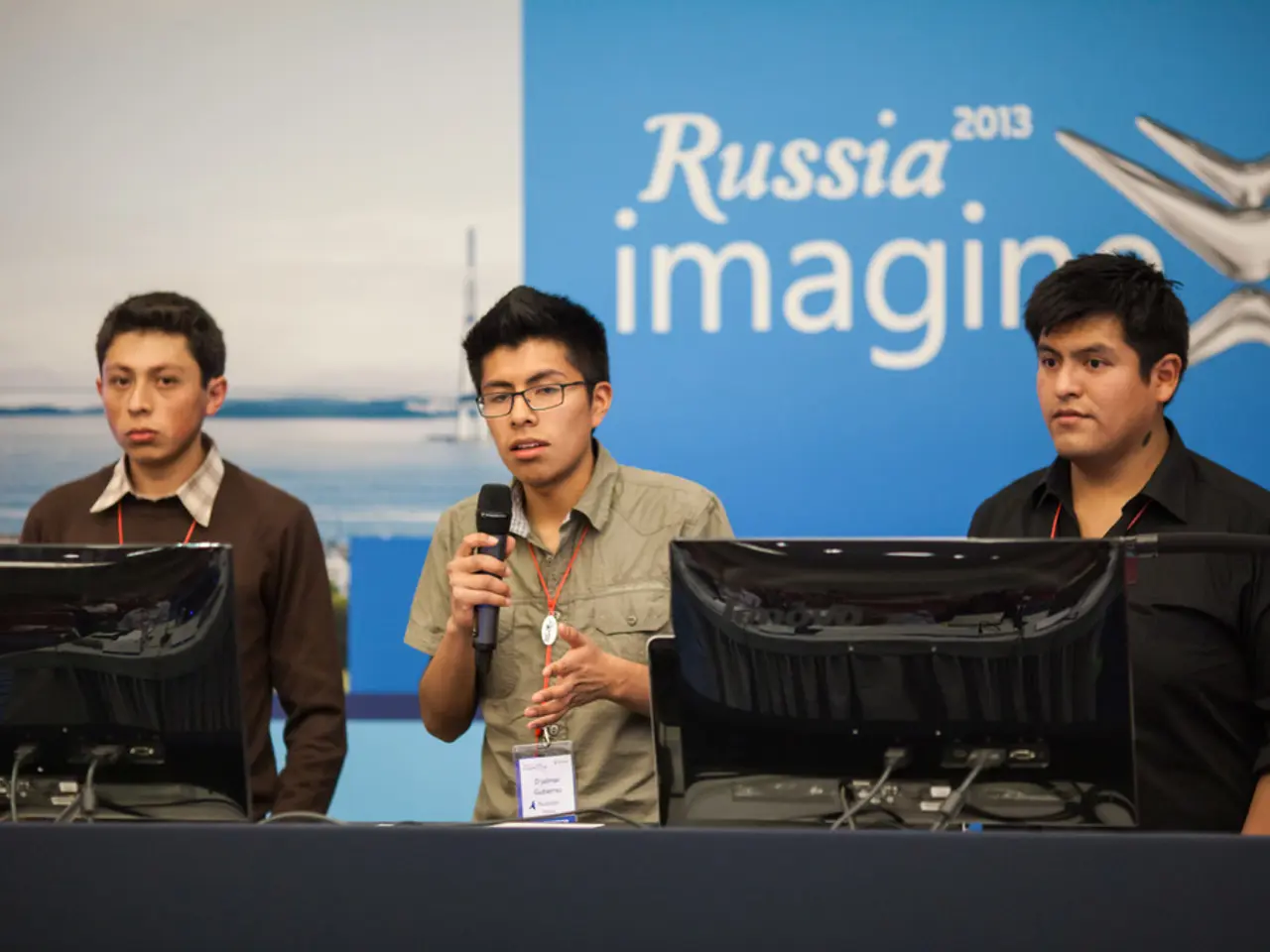Ukraine's President Selenskyy declines Putin's invitation for a meeting in Moscow.
In the ongoing Ukraine conflict, tensions remain high as various nations take different stances and actions.
Russian President Vladimir Putin extended an invitation to Ukrainian President Volodymyr Zelensky to visit Moscow, an offer that Zelensky has deemed unacceptable. Meanwhile, Canadian Prime Minister Mark Carney announced new sanctions against Russia, asserting that Putin will not dictate the peace terms.
The Ukrainian military has reported a significant development, with the rescue of four soldiers from Russian-occupied territory who had been hiding for over three years. However, the conflict continues, with ongoing military operations and potential war crimes under investigation.
Ukraine's military intelligence has reported that Russia's defense industry is now capable of producing 2,700 Geran-2 combat drones per month. This development is a cause for concern, as it could escalate the conflict further.
In response to these events, the United States is actively working on providing comprehensive security guarantees for Ukraine. These guarantees could include intelligence sharing, battlefield monitoring, and participation in a European-led air defense shield. The U.S. has also offered NATO-like mutual defense guarantees outside the alliance framework, although details and Putin's acceptance remain unclear.
European leaders are also involved in the discussions, with French President Emmanuel Macron stating that 26 countries are ready to participate with soldiers in a force to secure peace in Ukraine.
The situation is not just a military one. CSU chairman Markus Söder suggested discussing the handling of Ukrainian refugees and sending fit Ukrainians back to their homeland. This proposal has sparked controversy and debate.
Ukrainian special forces have claimed success in disabling a Russian radar system, a Russian boat, and an electronic warfare station in the Black Sea. These actions demonstrate the determined resistance of the Ukrainian forces.
On the economic front, the RWE energy company CEO Markus Krebber has cautiously commented on the possible startup of the Nord Stream pipelines, stating that it is ultimately a political question. Meanwhile, labor market researcher Enzo Weber expects a long-lasting boom in Germany's defense industry, with up to 200,000 jobs potentially being created if Germany were to increase its defense spending from 2 to 3 percent of GDP on a debt-financed basis.
Political developments continue on multiple fronts. Hungarian Foreign Minister Péter Szijjártó criticized Ukrainian President Volodymyr Zelensky for his stance on Hungary's opposition to Ukraine's EU membership. Meanwhile, US President Donald Trump is working on security guarantees for Ukraine to help end the war with Russia, and he expects the release of many political prisoners in Belarus, potentially happening in the near future.
As the situation in Ukraine continues to evolve, it remains a topic of global concern and discussion. The hope is for a peaceful resolution that respects the sovereignty and territorial integrity of Ukraine.
Sources: ntv.de, lme/hul/mpa/dpa/rts/AFP.
Read also:
- Tobacco industry's suggested changes on a legislative modification are disregarded by health journalists
- Trump's Policies: Tariffs, AI, Surveillance, and Possible Martial Law
- Uncovering Political Ad Transparency: A Guide to Investigating opponent's Political Advertisements in the Digital Realm
- Elon Musk praises JD Vance's debate performance against Tim Walz








